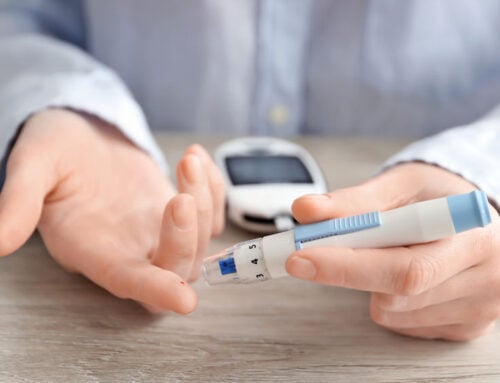What Is Blood Sugar And Why is it Important?
Glucose is the medical term for blood sugar. Glucose provides energy to the body’s cells which enables the body to perform different duties. Food is the primary source of glucose. Once a person eats food, the body breaks down the food to harvest the glucose. Then the blood carries the blood sugar throughout the body to each cell. If the body produces too much or too little glucose, serious problems may arise.

How does the body manage blood sugar production?
The body manages blood sugar production through insulin. Insulin is a hormone naturally produced by the body to circulate and manage blood glucose levels. The pancreas produces insulin. Insulin aids in spreading blood sugar to each cell. Low insulin levels can lead to diabetes. People with diabetes have to check blood sugar levels daily and take injectable insulin.
What are the signs of low blood sugar?
People with low blood sugar levels can suffer from a variety of symptoms. Issues related to low blood sugar include hunger, dizziness, sweating, shaking, and irritability. The medical term for low blood sugar is hypoglycemia. Low blood sugar is not always a sign of diabetes. Hypoglycemia can occur when someone skips meals, exercises too much, or drinks too much alcohol.
Are high blood sugar levels dangerous?
High blood sugar, also known as hyperglycemia, is caused by several factors, including eating too much and being stressed. Extreme thirstiness, blurry vision, and the constant need to urinate are all symptoms of high blood sugar. Hyperglycemia is a serious medical condition that can lead to the production of ketones and a diabetic coma if left untreated.
How do medical professionals test blood sugar levels?
Medical professionals use a glucometer to evaluate blood glucose levels. Glucometers are sold over the counter and can be used by patients to monitor blood sugar levels at home. With a glucometer, patients must prick the finger to collect a small sample of blood. Then the blood is applied to a test strip that gets inserted into the glucometer.
What other devices are used to test blood sugar levels?
Another blood glucose testing device is a continuous glucose monitor (CGM). A CGM is an in-depth testing device that monitors the amount of blood sugar within all the fluids of the body. A CGM can check blood glucose levels every 15 minutes. Due to the sophistication of the device, medical professionals can use this monitor to track the movement of glucose in the body. CGMs use sensors placed on the belly or arm to send messages to the device.
How can I manage my blood sugar levels?
Leading a healthy lifestyle is the best way to manage blood sugar levels. This includes getting an adequate amount of sleep, exercising, eating a well-balanced diet, and reducing stress. These are all natural ways to keep blood sugar and insulin levels normal.
Should I talk to my doctor about my blood sugar levels?
Patients should consult a physician regarding blood sugar levels. Patients experiencing any of the signs or symptoms associated with hypoglycemia or hyperglycemia should seek medical attention. A doctor can run the proper tests to determine if the patient has diabetes or pre-diabetes. Doctors can also work with patients to develop treatment plans to keep blood sugar at normal levels.




